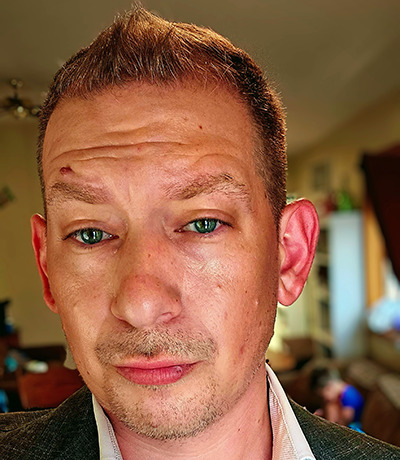
Thomas Noah, PhD
“Dr. Thomas Noah is a philosopher and international expert in moral psychology, ethics, social norm theory, and behavioral decision science. Dr. Noah teaches “”Democratizing Data? Critical Data Studies in Algorithmic Governance,”” “”Law and Social Policy,”” and “”Law and Social Policy Foundations”” for the Master of Science in Social Policy program. Dr. Noah has previously taught for the Master of Science in Nonprofit Leadership, the Master of Behavioral and Decision Sciences, the Philosophy department, and the Philosophy, Politics, and Economics program at the University of Pennsylvania. He has also taught courses for the philosophy departments at Rutgers University, the University of Delaware, Texas Tech University, and Widener University.
In addition to academic work, Dr. Noah is an internationally recognized consultant on social norms and social change, and he has provided training and technical assistance on a number of projects for partner governments and NGOs. As a member of the Penn Social Norms Group, he has worked with UNICEF, the Innocenti Global Office of Research and Foresight, the Gates Foundation, the United Nations Population Fund, the European Commission, Chatham House, and others across North America, Europe, Africa, and Asia. He has consulted and provided training and leadership on a range of social change projects, including the eradication of violence against children, the social inclusion of children with disabilities, the development of market-based solution to water access in failed states, the promotion of electoral transparency and anti-corruption, the end of open defecation, the empowerment of women agricultural workers, and more.
Dr. Noah received his PhD from the University of Pennsylvania. He also holds a Graduate Certificate in Social, Cognitive and Affective Neuroscience and a Teaching Certificate from the Center for Teaching and Learning from the University of Pennsylvania. He was selected as a scholar for the National Endowment of the Humanities’s Summer Institute on Moral Psychology and Moral Education. He holds a Graduate Certificate in Ethics from Texas Tech University. Dr. Noah has a BA in Ethical, Social & Political Philosophy from the University of Massachusetts Boston and an AA from Cowley County Community College (KS).
Dr. Noah lives locally with his wife and young children. He enjoys nature, music, and community building.
Selected Publications
Academic: “But What’s the Real Reason? Internalism and Navigating Parental Commitments,” with Molly Sinderbrand, The American Journal of Bioethics, forthcoming, 2025.
Non-Academic: “Applying Social Norms Theory in CATS Programming,” with Cristina Bicchieri, University of Pennsylvania Social Norms Group, UNICEF, 2017″
Contact
About
Pronouns
he/him/they/them
Department(s)
Faculty | Lecturers | Part-time LecturersProgram(s)
MSSP